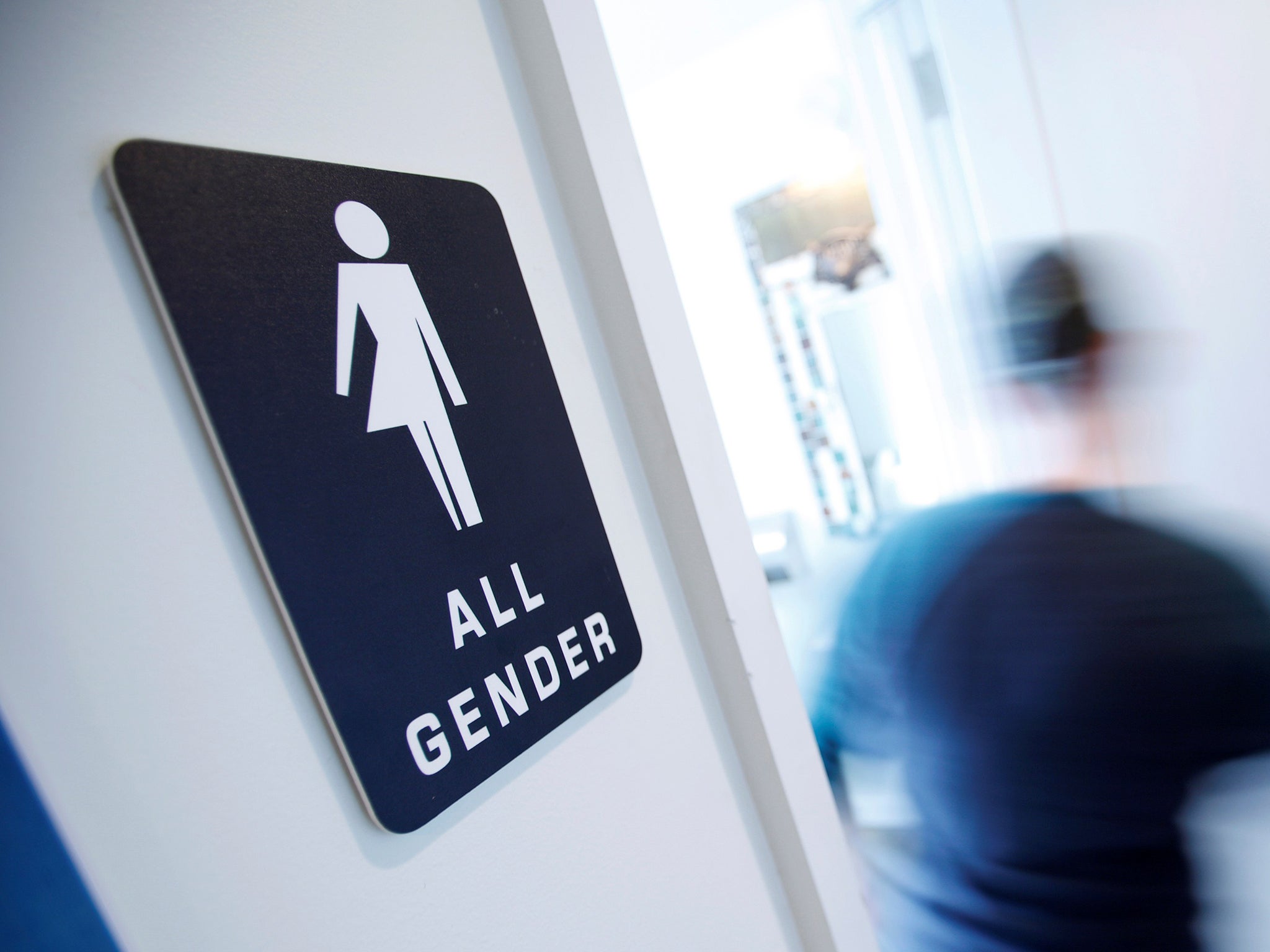North Carolina repeals 'bathroom bill' that discriminates against transgender people
Some LGBTQI activists feel the repeal does not go far enough because it does not allow local governments to issue their own anti-discrimination policies

Your support helps us to tell the story
From reproductive rights to climate change to Big Tech, The Independent is on the ground when the story is developing. Whether it's investigating the financials of Elon Musk's pro-Trump PAC or producing our latest documentary, 'The A Word', which shines a light on the American women fighting for reproductive rights, we know how important it is to parse out the facts from the messaging.
At such a critical moment in US history, we need reporters on the ground. Your donation allows us to keep sending journalists to speak to both sides of the story.
The Independent is trusted by Americans across the entire political spectrum. And unlike many other quality news outlets, we choose not to lock Americans out of our reporting and analysis with paywalls. We believe quality journalism should be available to everyone, paid for by those who can afford it.
Your support makes all the difference.North Carolina has rolled back contentious “bathroom law”, a move that is intended to help stem the financial backlash from the law limiting LGBT protections.
Democrat Governor Ray Cooper and Republican State Senate President Phil Berger and state House Speaker Tim Moore announced ahead of the votes that they had struck the deal that repeals the controversial law.
The new measure cleared the House and Senate and was signed by Governor Cooper in a matter of hours. “Today's law immediately removes that restriction. It's gone,” Mr Cooper said. The governor had urged legislators to support the deal, which among other things repeals the year-old law that said transgender people have to use the public restrooms that correspond to the sex on their birth certificate.
However, not everyone is pleased with the deal between the Republican-controlled Legislature and the Democratic governor. Rena McDonald a lawyer and member of Executive Pride, the LGBTQ workplace equality organisation, told The Independent that "the North Carolina Bathroom Bill repeal is like the wizard from the Wizard of Oz. It looks and sounds impressive, but ultimately won’t do anything."
Senator Dan Bishop, a primary sponsor of House Bill 2, denounced the new deal on the Senate floor. “This bill is at best a punt, at worst a betrayal of principle,” said the Republican from the Charlotte area.
Though the repeal rolls back discrimination in some bathrooms, it leaves the regulations solely in the hands of the state, meaning that it blocks cities from offering their own job and restroom protections to vulnerable groups for nearly four years. Therefore, city governments and universities will not be allowed to issue their own anti-discrimination regulations until 2020.
Mr Cooper said in a statement that though the compromise is not the ideal, he feels it “begins to repair [North Carolina’s] reputation.“
The three-part proposal will repeal the law known as HB2. However, new provisions would still ban local municipalities, schools and others from regulating bathroom access.
It will also save the state millions in potential lost revenue. The Associated Press estimated that the HB2 law would cost the state more than $3.7 billion over the next decade because sports teams, advertisers, and companies were pulling business from the state in the wake of the bill.
The National Collegiate Athletic Association (NCAA) went as far as issuing an ultimatum, giving North Carolina one week to stop restricting the choice of bathroom facilities of transgender people otherwise it would pull holding events in the state until 2022.
Chris Sgro, executive director of Equality NC, said the repeal announcement was just political “antics.” He said “it’s doubling down on the discrimination that HB2 exacts — it's HB2.0."
James Esseks, director of the American Civil Liberties Union LGBT Project, said legislators “should be ashamed of this backroom deal.” “This is not a repeal of HB2. Instead, they're reinforcing the worst aspects of the law,” he said in a statement.
Ms McDonald said the repeal is more of a "side step" because of the limits on local governments that could make the rule apply outside of state buildings. The majority of public restrooms remain under the control of individual owners.
She noted that though the repeal compromise is progress, it appears as "a blatant attempt by North Carolina to entice several large companies to come back to the state after they left because of HB2."
Join our commenting forum
Join thought-provoking conversations, follow other Independent readers and see their replies
Comments